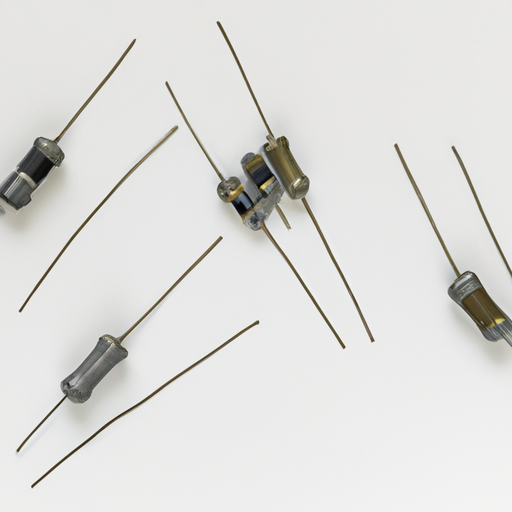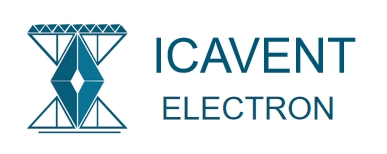What are the Advantages of Capacitor Resistor Products?

I. Introduction
In the realm of electronics, capacitor resistor products play a pivotal role in the functionality and efficiency of various circuits. These components, which combine the properties of capacitors and resistors, are essential for managing electrical energy, ensuring signal integrity, and enhancing overall circuit performance. This article aims to explore the advantages of capacitor resistor products, shedding light on their significance in modern electronic applications.
II. Overview of Capacitors and Resistors
A. Basic Functions of Capacitors
Capacitors are passive electronic components that store and release electrical energy. Their primary functions include:
1. **Energy Storage**: Capacitors can store energy in an electric field, allowing them to release it when needed. This property is crucial in applications such as power supply circuits, where capacitors smooth out voltage fluctuations.
2. **Filtering and Smoothing**: Capacitors are widely used in filtering applications to remove unwanted frequencies from signals. They help in smoothing out the output of power supplies, ensuring a stable voltage supply to sensitive components.
B. Basic Functions of Resistors
Resistors, on the other hand, are components that limit the flow of electric current. Their key functions include:
1. **Current Limiting**: Resistors are used to control the amount of current flowing through a circuit, protecting sensitive components from damage due to excessive current.
2. **Voltage Division**: Resistors can divide voltage in a circuit, allowing for the creation of reference voltages needed for various applications.
C. Interaction Between Capacitors and Resistors
The interaction between capacitors and resistors is fundamental in many electronic circuits. When combined, they can create filters, oscillators, and timing circuits, enhancing the performance and functionality of electronic devices.
III. Advantages of Capacitor Resistor Products
A. Enhanced Circuit Performance
1. **Improved Signal Integrity**: Capacitor resistor products help maintain the integrity of signals in electronic circuits. By filtering out noise and stabilizing voltage levels, they ensure that signals remain clear and accurate, which is particularly important in communication devices and audio equipment.
2. **Reduced Noise and Interference**: These products can effectively reduce electromagnetic interference (EMI) and radio frequency interference (RFI), leading to cleaner signals and improved overall performance of electronic devices.
B. Versatility in Applications
1. **Use in Various Electronic Devices**: Capacitor resistor products are found in a wide range of electronic devices, from consumer electronics like smartphones and televisions to industrial equipment and automotive systems. Their versatility makes them indispensable in modern electronics.
2. **Adaptability to Different Circuit Designs**: These products can be tailored to meet the specific needs of different circuit designs, allowing engineers to optimize performance for various applications.
C. Energy Efficiency
1. **Reduced Power Loss**: By effectively managing energy flow, capacitor resistor products minimize power loss in circuits. This efficiency is crucial in battery-operated devices, where conserving energy extends battery life.
2. **Improved Energy Storage and Release**: The combination of capacitors and resistors allows for efficient energy storage and release, making these products ideal for applications that require quick bursts of energy, such as in power supply circuits.
D. Cost-Effectiveness
1. **Affordable Manufacturing**: Capacitor resistor products are generally cost-effective to manufacture, making them accessible for a wide range of applications. Their affordability contributes to the overall reduction in production costs for electronic devices.
2. **Long Lifespan and Reliability**: These components are known for their durability and reliability, often outlasting other electronic components. This longevity reduces the need for frequent replacements, further enhancing their cost-effectiveness.
E. Compact Design
1. **Space-Saving Solutions**: As electronic devices become smaller and more compact, the demand for space-saving components has increased. Capacitor resistor products can be designed to occupy minimal space while still delivering optimal performance.
2. **Lightweight Options for Portable Devices**: The lightweight nature of these components makes them ideal for portable devices, where weight and size are critical factors.
IV. Specific Applications of Capacitor Resistor Products
A. Power Supply Circuits
1. **Smoothing Capacitors**: In power supply circuits, smoothing capacitors work in conjunction with resistors to eliminate voltage ripples, providing a stable output voltage for sensitive components.
2. **Voltage Regulation**: Capacitor resistor products are essential in voltage regulation circuits, ensuring that the output voltage remains within specified limits, regardless of variations in input voltage or load conditions.
B. Audio Equipment
1. **Signal Coupling and Decoupling**: In audio applications, capacitor resistor products are used for coupling and decoupling signals, allowing for the transmission of audio signals while blocking DC components.
2. **Tone Control Circuits**: These products are integral to tone control circuits, enabling users to adjust bass, midrange, and treble frequencies for a customized audio experience.
C. Communication Devices
1. **Filtering Signals**: Capacitor resistor products are employed in communication devices to filter signals, ensuring that only the desired frequencies are transmitted or received.
2. **Impedance Matching**: They help in matching the impedance of different components in communication circuits, optimizing signal transfer and minimizing reflections.
D. Consumer Electronics
1. **Timing Circuits**: Capacitor resistor products are crucial in timing circuits, where they determine the timing intervals for various functions, such as in clocks and timers.
2. **Oscillators**: These components are also used in oscillator circuits, generating periodic signals for applications such as radio transmitters and receivers.
V. Challenges and Considerations
A. Limitations of Capacitor Resistor Products
1. **Temperature Sensitivity**: Capacitor resistor products can be sensitive to temperature variations, which may affect their performance. Engineers must consider temperature ratings when selecting components for specific applications.
2. **Frequency Response Issues**: The performance of these products can vary with frequency, necessitating careful design to ensure optimal performance across the intended frequency range.
B. Importance of Proper Selection
1. **Matching Specifications to Application**: Selecting the right capacitor resistor product for a specific application is crucial. Engineers must consider factors such as capacitance, resistance, voltage ratings, and tolerance to ensure compatibility with the circuit design.
2. **Understanding Tolerance and Ratings**: A thorough understanding of the tolerance and ratings of capacitor resistor products is essential for reliable circuit performance. This knowledge helps in avoiding potential failures and ensuring long-term reliability.
VI. Future Trends in Capacitor Resistor Technology
A. Advancements in Materials
1. **New Dielectric Materials for Capacitors**: Ongoing research into new dielectric materials is leading to the development of capacitors with improved performance characteristics, such as higher capacitance values and better temperature stability.
2. **Innovations in Resistor Technology**: Advances in resistor technology, including the development of thin-film and thick-film resistors, are enhancing the performance and reliability of these components.
B. Integration with Smart Technologies
1. **IoT Applications**: As the Internet of Things (IoT) continues to grow, capacitor resistor products are being integrated into smart devices, enabling efficient energy management and improved performance in connected applications.
2. **Smart Grid Solutions**: Capacitor resistor products are also playing a role in smart grid technologies, helping to optimize energy distribution and improve the reliability of power systems.
VII. Conclusion
In summary, capacitor resistor products offer numerous advantages that enhance the performance, efficiency, and reliability of electronic circuits. Their versatility in applications, cost-effectiveness, and compact design make them indispensable in modern electronics. As technology continues to evolve, the future of capacitor resistor products looks promising, with advancements in materials and integration with smart technologies paving the way for even greater innovations. Understanding the benefits and challenges associated with these components is essential for engineers and designers as they strive to create cutting-edge electronic devices that meet the demands of an ever-changing technological landscape.
VIII. References
1. Academic Journals
2. Industry Publications
3. Manufacturer Specifications and Data Sheets
This comprehensive exploration of capacitor resistor products highlights their critical role in electronic circuits and their advantages across various applications. As technology advances, these components will continue to be at the forefront of innovation in the electronics industry.
What are the Advantages of Capacitor Resistor Products?

I. Introduction
In the realm of electronics, capacitor resistor products play a pivotal role in the functionality and efficiency of various circuits. These components, which combine the properties of capacitors and resistors, are essential for managing electrical energy, ensuring signal integrity, and enhancing overall circuit performance. This article aims to explore the advantages of capacitor resistor products, shedding light on their significance in modern electronic applications.
II. Overview of Capacitors and Resistors
A. Basic Functions of Capacitors
Capacitors are passive electronic components that store and release electrical energy. Their primary functions include:
1. **Energy Storage**: Capacitors can store energy in an electric field, allowing them to release it when needed. This property is crucial in applications such as power supply circuits, where capacitors smooth out voltage fluctuations.
2. **Filtering and Smoothing**: Capacitors are widely used in filtering applications to remove unwanted frequencies from signals. They help in smoothing out the output of power supplies, ensuring a stable voltage supply to sensitive components.
B. Basic Functions of Resistors
Resistors, on the other hand, are components that limit the flow of electric current. Their key functions include:
1. **Current Limiting**: Resistors are used to control the amount of current flowing through a circuit, protecting sensitive components from damage due to excessive current.
2. **Voltage Division**: Resistors can divide voltage in a circuit, allowing for the creation of reference voltages needed for various applications.
C. Interaction Between Capacitors and Resistors
The interaction between capacitors and resistors is fundamental in many electronic circuits. When combined, they can create filters, oscillators, and timing circuits, enhancing the performance and functionality of electronic devices.
III. Advantages of Capacitor Resistor Products
A. Enhanced Circuit Performance
1. **Improved Signal Integrity**: Capacitor resistor products help maintain the integrity of signals in electronic circuits. By filtering out noise and stabilizing voltage levels, they ensure that signals remain clear and accurate, which is particularly important in communication devices and audio equipment.
2. **Reduced Noise and Interference**: These products can effectively reduce electromagnetic interference (EMI) and radio frequency interference (RFI), leading to cleaner signals and improved overall performance of electronic devices.
B. Versatility in Applications
1. **Use in Various Electronic Devices**: Capacitor resistor products are found in a wide range of electronic devices, from consumer electronics like smartphones and televisions to industrial equipment and automotive systems. Their versatility makes them indispensable in modern electronics.
2. **Adaptability to Different Circuit Designs**: These products can be tailored to meet the specific needs of different circuit designs, allowing engineers to optimize performance for various applications.
C. Energy Efficiency
1. **Reduced Power Loss**: By effectively managing energy flow, capacitor resistor products minimize power loss in circuits. This efficiency is crucial in battery-operated devices, where conserving energy extends battery life.
2. **Improved Energy Storage and Release**: The combination of capacitors and resistors allows for efficient energy storage and release, making these products ideal for applications that require quick bursts of energy, such as in power supply circuits.
D. Cost-Effectiveness
1. **Affordable Manufacturing**: Capacitor resistor products are generally cost-effective to manufacture, making them accessible for a wide range of applications. Their affordability contributes to the overall reduction in production costs for electronic devices.
2. **Long Lifespan and Reliability**: These components are known for their durability and reliability, often outlasting other electronic components. This longevity reduces the need for frequent replacements, further enhancing their cost-effectiveness.
E. Compact Design
1. **Space-Saving Solutions**: As electronic devices become smaller and more compact, the demand for space-saving components has increased. Capacitor resistor products can be designed to occupy minimal space while still delivering optimal performance.
2. **Lightweight Options for Portable Devices**: The lightweight nature of these components makes them ideal for portable devices, where weight and size are critical factors.
IV. Specific Applications of Capacitor Resistor Products
A. Power Supply Circuits
1. **Smoothing Capacitors**: In power supply circuits, smoothing capacitors work in conjunction with resistors to eliminate voltage ripples, providing a stable output voltage for sensitive components.
2. **Voltage Regulation**: Capacitor resistor products are essential in voltage regulation circuits, ensuring that the output voltage remains within specified limits, regardless of variations in input voltage or load conditions.
B. Audio Equipment
1. **Signal Coupling and Decoupling**: In audio applications, capacitor resistor products are used for coupling and decoupling signals, allowing for the transmission of audio signals while blocking DC components.
2. **Tone Control Circuits**: These products are integral to tone control circuits, enabling users to adjust bass, midrange, and treble frequencies for a customized audio experience.
C. Communication Devices
1. **Filtering Signals**: Capacitor resistor products are employed in communication devices to filter signals, ensuring that only the desired frequencies are transmitted or received.
2. **Impedance Matching**: They help in matching the impedance of different components in communication circuits, optimizing signal transfer and minimizing reflections.
D. Consumer Electronics
1. **Timing Circuits**: Capacitor resistor products are crucial in timing circuits, where they determine the timing intervals for various functions, such as in clocks and timers.
2. **Oscillators**: These components are also used in oscillator circuits, generating periodic signals for applications such as radio transmitters and receivers.
V. Challenges and Considerations
A. Limitations of Capacitor Resistor Products
1. **Temperature Sensitivity**: Capacitor resistor products can be sensitive to temperature variations, which may affect their performance. Engineers must consider temperature ratings when selecting components for specific applications.
2. **Frequency Response Issues**: The performance of these products can vary with frequency, necessitating careful design to ensure optimal performance across the intended frequency range.
B. Importance of Proper Selection
1. **Matching Specifications to Application**: Selecting the right capacitor resistor product for a specific application is crucial. Engineers must consider factors such as capacitance, resistance, voltage ratings, and tolerance to ensure compatibility with the circuit design.
2. **Understanding Tolerance and Ratings**: A thorough understanding of the tolerance and ratings of capacitor resistor products is essential for reliable circuit performance. This knowledge helps in avoiding potential failures and ensuring long-term reliability.
VI. Future Trends in Capacitor Resistor Technology
A. Advancements in Materials
1. **New Dielectric Materials for Capacitors**: Ongoing research into new dielectric materials is leading to the development of capacitors with improved performance characteristics, such as higher capacitance values and better temperature stability.
2. **Innovations in Resistor Technology**: Advances in resistor technology, including the development of thin-film and thick-film resistors, are enhancing the performance and reliability of these components.
B. Integration with Smart Technologies
1. **IoT Applications**: As the Internet of Things (IoT) continues to grow, capacitor resistor products are being integrated into smart devices, enabling efficient energy management and improved performance in connected applications.
2. **Smart Grid Solutions**: Capacitor resistor products are also playing a role in smart grid technologies, helping to optimize energy distribution and improve the reliability of power systems.
VII. Conclusion
In summary, capacitor resistor products offer numerous advantages that enhance the performance, efficiency, and reliability of electronic circuits. Their versatility in applications, cost-effectiveness, and compact design make them indispensable in modern electronics. As technology continues to evolve, the future of capacitor resistor products looks promising, with advancements in materials and integration with smart technologies paving the way for even greater innovations. Understanding the benefits and challenges associated with these components is essential for engineers and designers as they strive to create cutting-edge electronic devices that meet the demands of an ever-changing technological landscape.
VIII. References
1. Academic Journals
2. Industry Publications
3. Manufacturer Specifications and Data Sheets
This comprehensive exploration of capacitor resistor products highlights their critical role in electronic circuits and their advantages across various applications. As technology advances, these components will continue to be at the forefront of innovation in the electronics industry.













